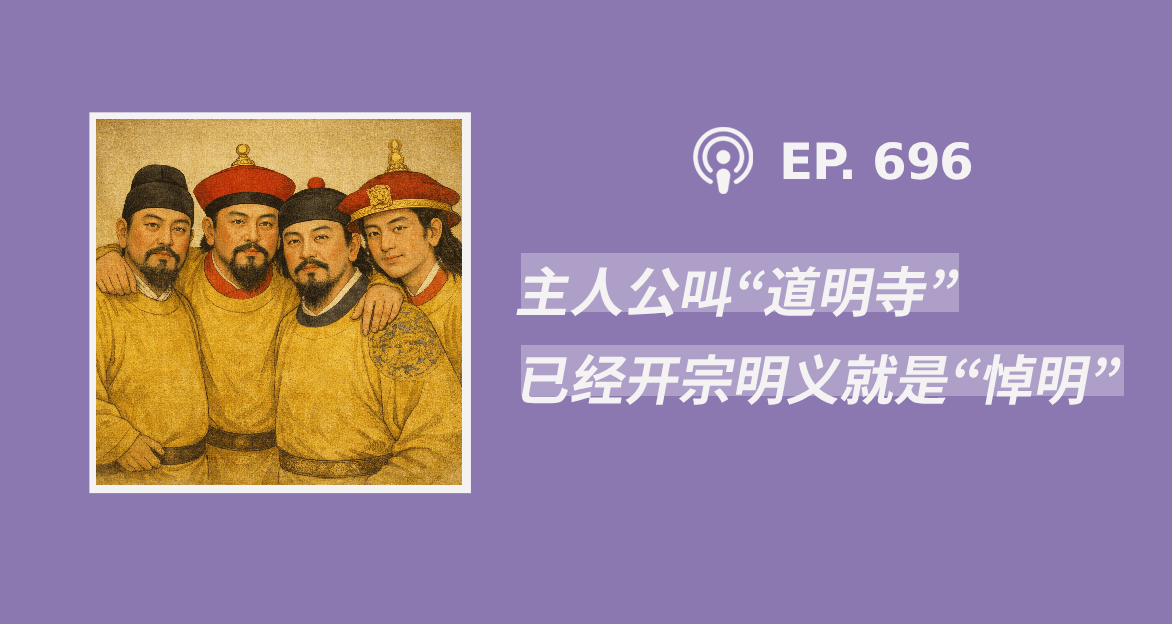原作者:
来源Upheaval in Syria: No dialogue with the child-killers! | The Economist (叙利亚动乱僵局难破)
译者eileenneo
Upheaval in Syria
No dialogue with the child-killers!
A scarred city defies the security forces with sticks, stones and courage
叙利亚动乱愈演愈烈:我们拒绝同杀人凶手谈判!
——一个伤痕累累的城市用棍棒,石头和勇气同阿萨德政权展开抗争
AS THE unrest enters its fifth month, there is still little hint of light at the end of the Syrian tunnel. The embattled regime of Bashar Assad, having failed to quell the uprising with a mixture of fierce brutality and half-hearted promises of reform, is now pinning its hopes on a national dialogue, in which its opponents are meant to voice their demands. But the street-level organisers who sustain the nationwide protests have shunned the meeting, as have prominent parties and dissidents.
They think there is no point in talking to a government they describe as murderers. Syria’s rebels do not expect to topple Mr Assad quickly, but they are confident that time is on their side. The rhythm of protests, followed by crackdowns, followed by renewed protests has become insistent in many cities. And dissent drums loudest in Hama, Syria’s fourth-largest city.
叙利亚的动乱已经进入了第五个月,却依旧没有丝毫停止的预兆。陷入动乱的阿萨德政权一方面以暴力还击,一方面又应付般地承诺改革。尽管如此却依然无法镇压这场动乱。目前,阿萨德政权将希望寄予谈判,让抗议者提出自己的要求。但是那些全国街道游行的组织者,重要的政党和反对派都拒绝同阿萨德政权会面。
他们认为同一个满手沾满鲜血的政府谈判没有任何意义。叙利亚的反对派并不奢望能够很快推翻阿萨德政权,但是他们相信经过长时间的努力,他们一定能取得胜利。在叙利亚的很多城市,抗议的浪潮总是一波未平,一波又起。抗议的战鼓在哈马(叙利亚的第四大城市)响得尤为猛烈。
No Syrian city bears more scars from four decades of rule by the Assad family than Hama. In 1982 the forces of Bashar’s father, Hafez Assad, shelled it mercilessly to wipe out an armed Islamist uprising. They succeeded, but also wiped out a man from every Hama family and sowed seeds of grievance, nurtured for 30 years in the hearts of the residents.
在阿萨德家族统治的四十年中,叙利亚的任何一个城市所遭受的煎熬都比不上哈马。1982年,为了镇压一场伊斯兰武起义,巴沙尔的父亲阿萨德的军队无情地炮轰哈马。他们成功地镇压了这场起义,但是哈马市的家家户户都为此失去了自己的亲人,因而埋下了仇恨的种子并在此后的30年中生根发芽。
Hama is now a place of extremes: joyous and sad, defiant but fearful. The creak of ancient waterwheels turning in the cool water of the Orontes, which snakes through this city of 800,000, was the only sound in the still hot air during the daytime last weekend. Shops were shuttered. Residents stayed indoors, fearing government punishment after a month of being left more or less to their own devices.
如今哈马充满了各种极端的情绪:兴奋与伤感并存,不服与担忧交错。8000年来,奥龙特斯河在哈马市蜿蜒盘旋。古老的水轮咿呀转动,掀起清凉的河水。上个周末,气氛凝重空气燥热的哈马市商户紧闭,市民们足不出户,打破沉寂的唯有这咿呀转动的水轮声。在政府按兵不动一个月后,哈马市的市民担心他们的抗议会迎来政府的惩罚。
The regime’s security forces had pulled out of Hama after killing more than 70 protesters on June 3rd. On the first Sunday of July, with a ban on foreign reporters in place, tanks again rumbled into the outskirts of the city. Security squads hunted suspects and clashed with protesters, shooting more than 20 of them dead. Locals say that they also cut out the vocal cords of a singer who had warbled improvised anti-regime ditties in previous weeks. But Hama residents reacted quickly to protect the city from any broader assault. Districts pulled together. Makeshift checkpoints sprang up, with litter bins, bricks, gates and uprooted lamp-posts used to block cars.
6月3日,在杀了70多名抗议者后,阿萨德政权的军队便撤出了哈马。7月的第一个星期日,阿萨德政权颁布了对国外记者进入的禁令,与此同时坦克再次进入了哈马市市郊。安全队追捕嫌疑犯并同抗议者对抗,在此过程中,20多名抗议者惨遭枪杀。当地居民表示,由于在自己的歌曲中对抗议者表示同情,安全队在几个星期前还切除了这名歌手的声带。但是,哈马市市迅速地行动了起来,保护自己的家园防止其受到更大的侵害。各个地区的人们集合在一起,纷纷建立其临时检查点。人们用垃圾桶,砖块,门和从地面拔起的灯杆来阻拦汽车的进入。
During the day these checkpoints are lightly manned, sometimes by one young man armed with a wooden stick, or by a handful of young boys, their skinny limbs browned from the sun. They tell the few drivers winding their way through shut-down streets which roads are open. The guard is beefed up at night. This is when the security forces, ever-present at the edge of the city, try to get into the centre. When some do slink in, as they did in the early hours of Friday July 8th, calls of Allahu Akbar ring out in warning. Gunfire crackles. Voices rise in crescendo, chanting for the regime to fall. And then silence. Sleepy families return to bed, fans whirring and net curtains twitching in the breeze.
白天的时候,看守这些检查点的人员极少,有时候只有一个年轻人,有时候是几个男孩子。阳光将他们消瘦的四肢晒成了棕色。他们会告知司机如何绕过关闭的街道找到畅通的道路。晚上的时候,他们会增加人手。因为那些驻扎在城市边缘的安全队往往在这个时候伺机潜入市中心。一旦他们潜入市中心(7月8日清晨,他们曾经成功潜入到市中心),“真主伟大”的警笛就会拉响。枪声四起,打到阿萨德政权的呼声一浪高过一浪。紧接着便是沉寂。困倦的人们纷纷回家睡觉,反政权的狂热者们接二连三地散去,只剩下窗帘随风舞动。
Many assumed there would be bloodshed that Friday, after Muhammad Mofleh, a hated security chief who had been removed as part of a deal with Hama residents, was returned to his job. In fact it was a joyous day. For the fifth Friday in a row, thousands of people waving olive branches and pink roses poured into Aasi Square from every direction. Parked vans served as podiums from which men led the cries: “The people want to topple the regime! No to dialogue! No to Bashar!” A Syrian flag was paraded up and down the road. Another van distributed free water to thirsty protesters. Men hung like spiders off the balconies and rooftops of surrounding buildings, filming with their mobile phones.
很多人认为上星期五有流血事件发生。此前,饱受群众唾弃的前安全队长穆罕默德·莫菲又官复原职,而阿萨德政权曾与哈马市民达成协议撤除他的职务。事实上7月8号是令人激动的一天。成千上万来自四面八方的民众手中挥舞着橄榄枝和粉色玫瑰涌入阿萨广场。这已经是人们连续第四次在星期五示威游行了。人们把大篷车当做舞台,一些人站在上面领着群众高呼:“我们想推翻政权!坚决不和巴莎尔和谈!”一面叙利亚的国旗跟随游行示威的人群传遍整条街道。一辆货车为口渴的抗议者提供免费饮用水。人们如蜘蛛侠一般悬挂在阳台和周围高楼的房顶,用手机拍摄这壮观的场面。
Condemning the regime as “distorted” and “inhumane”, residents flick between ecstasy at what has been achieved in the past few months and anxiety at what may be to come. “We know this regime and they would do anything,” says one man in his 50s. Boys as young as six chant for the regime to fall as they play in the street and as mobile ringtones trill “Ya Heef”, a song about the protest that started in Deraa and spread around the country.
前几个月,人们沉浸在抗议的激动和兴奋中。而未来阿萨德政权的行动却令人担忧。人们一边咒骂着这个扭曲的毫无人性的政权,一边又在这两种情绪中徘徊。一个40多岁的哈马市民说:“我们了解阿萨德政权,他们不会为我们做任何事的。”甚至连6岁的男孩子在街道上玩耍的时候都会唱着推到政权的歌谣。手机中频频传出“Ya Heef”的铃声。这首歌正是关于一场由德拉点燃,并随后传遍全国的抗议行动。
The checkpoints are not the only evidence of the new people-led society. The mobile phones of older residents buzz constantly as they pass on information and rumours. People organise timetables for the checkpoints and for manning the entrances to hospitals. Rich families bring food and water to those on duty. People clean their own streets. Others make lists of informers. When the security forces cut the lights in one street, some enterprising residents managed somehow to bring them back on again.
除了检查站的设立,还有其他种种迹象表明人们已经开始建立自主的新社会:在哈马斯,年长的居民一旦获知任何消息用手机相互告知;人们设立了作息时间表以为检查站和医院入口的看守工作配备人员;富人为那些执勤的居民送来水和食物;人们自己清扫自己的街道;还有些人列出了告密者的名单;当安全队的人将街道上的路灯切断,一些居民总能想办法让它们重新亮起来。
Everyone, from an educated government worker to a builder, articulates very carefully what he or she wants. At the start they were asking only for their basic freedoms. But then the killing and the torture began. They know that regime propaganda is portraying them as Salafists (Hama is a conservative Sunni city) and armed. The vast majority are neither.
从受过良好教育的公务员到一名建筑工人,哈马的每一个市民都清楚地表达了自己的意愿。起初,他们只希望能够得到基本的自由。但是随之而来的确实杀戮和施虐。他们知道阿萨德政权将他们描述成武装的萨里菲派,但是事实上大多数人既不属于萨里菲派,也没有任何武装。
But though all signs of Assad rule have gone—posters of Bashar have been replaced with graffiti and posters saying “No dialogue with the child-killers!”—the citizens know that they cannot do much to turn things round, other than encourage other cities to follow suit. Stones are inadequate against gunfire. The regime’s forces appear to be trying new tactics, raiding street by street rather than making an all-out assault. Even so, the people of Hama are determined not be cowed. “We want to live like people, not animals, and we will die for that,” one woman exclaims.
巴萨尔的画像已经消失不见,取而代之的是人们的涂鸦和写着标语的海报——“我们不同杀害孩子们的凶手谈判!” 尽管所有阿萨德统治的迹象都已不复存在,但是哈马市市民知他们能做的也只能是鼓励更多的市民参与到反抗中。石头毕竟无法同枪炮抗争。阿萨德军队似乎在尝试新的战术,他们企图一个街道一个街道地突袭而非发起一次性地进攻。尽管如此,哈马市民依旧毅然决然,无畏无惧。一名妇女说:“我们想做人,不想像牲口一样活着。我们将为此抗争到底,不惜牺牲性命。”
相关文章:
本文由自动聚合程序取自网络,内容和观点不代表数字时代立场













